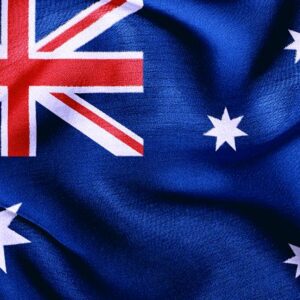Australia is rich with unique phrases and vocabulary that can seem bewildering to those unfamiliar with its quirks. Here are some common words and phrases that are distinctly Australian:
- Arvo: Afternoon. “See you this arvo” means “See you in the afternoon”[1][2][4][9].
- Barbie: Barbecue. A common term for a grill or outdoor cooking setup[1][2][4].
- Bikkie: Biscuit, often referring to what Americans would call a cookie[6].
- Bottle-o: Liquor store. A place where alcohol is sold[2][4].
- Brekky: Breakfast. A shortened form of the first meal of the day[11].
- Capsicum: Bell pepper. This term is used instead of the American “bell pepper” or the British “green/red pepper”[3].
- Chook: Chicken. Commonly used to refer to both the animal and the food[2].
- Esky: An insulated container used to keep things cold, similar to what Americans might call a cooler[2][6].
- Footy: Depending on the context, it can refer to Australian Rules Football or rugby[3][6].
- G’day: A greeting, equivalent to “Hello”[2][4].
- Mozzie: Mosquito. A casual term for the often pesky insect[6].
- No worries: Used to express that something is no problem or to reassure someone[2][12].
- Sanger: Sandwich. A casual term for a sandwich[4].
- Thongs: Flip flops. Casual footwear, not to be confused with the American usage of the term, which refers to a type of underwear[4].
- Ute: A utility vehicle or pickup truck. A term for a certain type of car designed for practical use[3].
- Whinge: To complain or grumble. Often used to describe someone who is complaining unnecessarily[2].
- Bogan: An Australian term that describes a person who is perceived as unsophisticated or of lower socio-economic status[11].
- Smoko: A break from work to smoke a cigarette, though it can refer to coffee or tea breaks as well[6].
- Stickybeak: To be nosy or overly curious about others’ affairs[6].
- Trackies: Tracksuit pants. Casual, comfortable clothing typically worn at home or for exercise[6].
These terms reflect the informal and often humorous nature of Australian slang, which plays a significant role in everyday communication across the country.
Further reading:
[1] https://belsmalta.com/blogs/australian-english-words/
[2] https://ielts.com.au/australia/prepare/article-australian-slang-words-phrases
[3] https://en.wikipedia.org/wiki/Australian_English_vocabulary
[4] http://nomadsworld.com/aussie-slang/
[5] https://preply.com/en/blog/50-popular-australian-slang-words-and-phrases/
[6] https://www.vu.edu.au/sites/default/files/aussie-slang.pdf
[7] https://www.youtube.com/watch?v=jrc8MAWVp1w
[8] https://promova.com/blog/guide-to-aussie-slang
[9] https://www.yha.com.au/travel-and-tours/traveller-stories/20-aussie-slang-phrases-you-need-to-know/
[10] https://www.youtube.com/watch?v=CowGgp-A4mY
[11] https://www.usatoday.com/picture-gallery/travel/2019/08/03/australian-english-words-and-phrases-americans-just-dont-get/1892061001/
[12] https://www.cnn.com/travel/article/australian-slang-phrases/index.html
[13] https://www.ef-australia.com.au/english-resources/english-vocabulary/top-3000-words/
[14] https://www.csu.edu.au/current-students/support/international-students/english-language-support/aussie-slang-words-and-phrases
